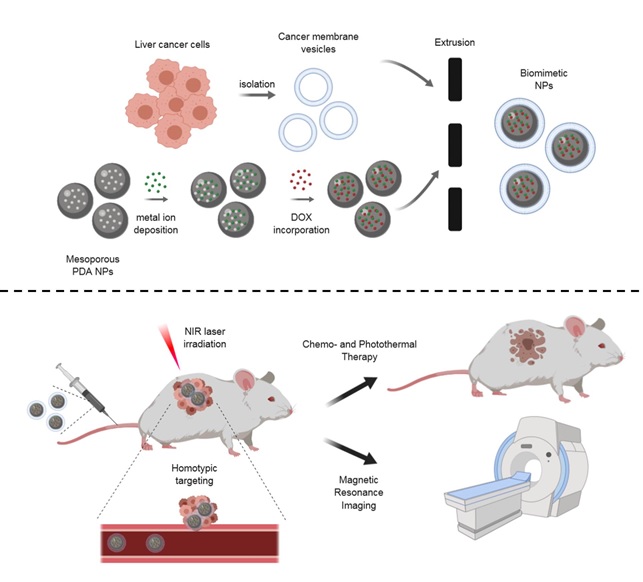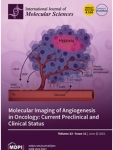
Supervisory institution:
National Science Center
Project manager:
Dr Bartosz Grześkowiak
Budget:
1 132 600,00 PLN
Start date:
06.2019
Duration:
36 months
Contract number:
UMO-2018/31/D/ST8/02434
The number of new cases of cancer as one of the most deadly diseases in the world increases each year. Current treatments may include chemotherapy, radiation, and surgery, but the effects of these procedures may damage not only the tumor tissue but also normal tissue. Nanotechnology, although still in the early stages, has the potential to revolutionize the early diagnosis, treatment, and monitoring of cancer progression. Application of nanometer molecules in medicine with the aim of fighting and curing ailments is the globally definition of nanomedicine. The nano- refers to the size that nanoparticles reach, i.e. the order of 10-9 m. For comparison, 1 nm is one thousandth of the bacteria length or 10 carbon atoms arranged in one row. Human hair has a width of approx. 80 000 nm and blood cell approx. 7 000 nm. Nanoparticles are the key components of nanomedicine and have received extensive interest as promising drug-delivery systems in anticancer therapy. The latest generation of nanomaterials for nanomedicine allow also to combine conventional methods with other treatment approaches like photothermal therapy what results in synergistic effect of treatment. However, although nanoparticles are promising drug carrier systems, their poor oral bioavailability, instability in circulation, inadequate tissue distribution, and toxicity are some limitations to practical application that remain unresolved. To overcome the problem of low delivery efficiency researchers have continued to develop nanomedicine with improved characteristics. Biomimetic functionalization of nanoparticles through camouflaging with cellular membranes has emerged as a promising strategy for cancer targeting.
The aim of this project is to develop biocompatible cancer cell membrane coated polymeric nanoparticle platform (biomimetic NPs) for prolonged blood circulation, superior tumor targeting, delivery of small molecular drug, imaging and photothermal therapy of a murine model of liver cancer. Hepatocellular carcinoma (HCC) is the most common primary malignancy of the liver. Conventional chemotherapy yields low objective response rates in HCC treatment. Thus, development of some new approach of anticancer agents is an imperative task to improve the therapeutic efficacy of HCC. The literature from the past 10 years on nanoparticle-based drug carriers showed that only 0.7% of the administered NPs dose was delivered to a solid tumor. Therefore, an efficient tumor-specific drug delivery system needs to be designed to provide prolonged circulation in the body with specific targeting towards tumors. Biomimetic functionalization of nanoparticles through coating with cellular membranes may contribute to development of new class of anticancer pharmaceutics. New concept of this study is to use the polydopamine (PDA), a biocompatible polymer with photothermal properties, as a platform for drug encapsulation, contrast agent deposition and cancer cell membrane coating. We believe that this study will demonstrate the promise of using a biomimetic coating approach for the design of functional, safe, and compatible PDA based nanocarriers for cancer drug delivery, photothermal therapy and imaging of liver cancer.
The project will be realized at the NanoBioMedical Centre (NBMC) AMU in cooperation with the Partner institution – the Poznań University of Medical Sciences (PUMS).


